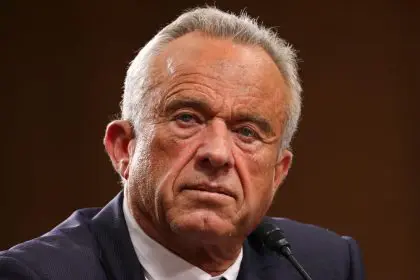Los Angeles, the beating heart of America’s entertainment industry, has long thrived on the glamour of red carpets and the hum of studio lots. Hollywood, a name synonymous with cinematic dreams, is undergoing a seismic shift, driven by streaming platforms and cutting-edge technology. The city that once revolved around theatrical releases and broadcast schedules now finds itself at the crossroads of a digital renaissance, with three key forces, streaming giants, artificial intelligence, and a fracturing audience, redefining its identity.
The numbers paint a stark picture. Film and TV employment in Los Angeles County, which peaked at 35% of the national share in 2022, dropped to 27% during the 2023 Hollywood strikes, according to the Otis College Report on the Creative Economy. Meanwhile, streaming services like Netflix, Disney+, and Amazon Prime Video have ballooned, with global subscribers topping 1 billion collectively. This pivot from traditional models isn’t just a trend, it’s a transformation that’s rewiring how stories are told, sold, and consumed in the City of Angels.
Streaming giants take the wheel
The first shift comes from the dominance of streaming platforms, which have turned Hollywood into a content factory for on-demand viewers. Netflix, spending $17 billion on programming in 2024, has set the pace, while Disney+ and Max chase close behind with their own billion-dollar budgets. These services, born in the digital age, prioritize quantity and immediacy over the slow burn of theatrical runs. In Los Angeles, studios that once banked on box-office hauls now churn out series and films for instant streaming, shrinking the theatrical window to mere weeks, or skipping it entirely.
This pivot has reshaped production. The Greater Los Angeles area saw a 36.4% drop in shoot days in 2024 compared to its five-year average, per FilmLA, as projects migrate to cheaper locales like Georgia and Canada. Yet, the streaming boom keeps local soundstages busy with smaller, tighter-budget originals. The Hollywood sign still looms large, but its glow now reflects a city feeding a global appetite for binge-worthy content rather than silver-screen epics.
AI steps into the spotlight
The second force, artificial intelligence, is rewriting Hollywood’s behind-the-scenes playbook. In 2024, Lionsgate partnered with Runway to harness AI for storyboarding, a move signaling a broader embrace of tech to cut costs and speed up creation. Warner Bros. Discovery uses Google AI to caption unscripted shows, slashing production time, while OpenAI’s Sora tool, launched publicly in late 2024, lets filmmakers craft short videos from text prompts. These tools promise efficiency in an industry squeezed by streaming’s slim margins.
The impact ripples through LA’s workforce. Traditional roles like editors and effects artists face pressure as AI handles tasks once done by hand, though new jobs in tech oversight emerge. The Writers Guild and SAG-AFTRA, fresh off 2023 strikes, watch warily as studios explore AI’s potential to draft scripts or simulate actors. Hollywood’s creative soul still thrives, but it’s learning to share the stage with algorithms, blending human ingenuity with machine precision.
Audiences scatter, habits shift
The third transformation lies in how audiences consume entertainment, fragmenting Hollywood’s once-unified hold. Streaming has untethered viewers from TV schedules, with 271 online video services in the U.S. catering to every niche, from horror buffs to horse enthusiasts, per Parks Associates. Social media and gaming, led by juggernauts like TikTok and the anticipated Grand Theft Auto VI release in fall 2025, compete fiercely for attention, especially among those under 30. Hollywood’s output, while vast, feels less central to younger eyes glued to phones.
This shift challenges LA’s economic core. The entertainment industry pumps $43 billion in wages into California, but as viewers drift to user-generated content or interactive platforms, traditional film and TV jobs wane. The rise of “modern” sectors, streaming, gaming, and live events, saw a 53% job growth from 2013 to 2024, per Otis College, yet overall employment lags pre-pandemic highs. Hollywood adapts by leaning into hybrid models, like Netflix’s planned 2025 “Netflix House” complexes, merging physical experiences with digital allure.
A city in flux
Los Angeles isn’t surrendering its crown, it’s retooling it. The streaming wars, sparked by Netflix’s 2007 debut, have matured into a landscape where mergers like Disney’s Hulu-Fubo deal and Amazon’s $40 million Melania Trump documentary buy signal consolidation. Production levels, down 20% globally in 2024, reflect caution after years of overspending, but California’s proposed $750 million tax credit boost aims to lure projects back. Still, rivals like Canada, with a weakening dollar, threaten to siphon more work.
The fires that ravaged LA in early 2025, burning 17,200 acres in Pacific Palisades alone, added urgency to this evolution. With homes lost and shoots halted, the industry faced another gut punch after pandemics and strikes. Yet, resilience persists. Studios pivot to indoor sets, and remote work, honed during COVID-19, keeps scripts flowing. Hollywood’s adaptability, forged over a century, meets its latest test in this tech-driven age.
What lies ahead
The Hollywood of 2025 isn’t the Hollywood of the Golden Age, or even the 2010s. Its transformation, streaming’s reign, AI’s ascent, and a splintered audience, forces a reckoning. The city remains the industry’s nerve center, claiming 50% of U.S. film and TV wages in 2023, but its dominance shrinks as New York and Atlanta rise. The future hinges on balancing innovation with tradition, a tightrope LA walks with grit.
This isn’t decline, it’s reinvention. As streaming platforms greenlight niche stories and AI crafts visuals once unimaginable, Hollywood’s storytellers find new canvases. The spotlight shifts, but the dream factory endures, its next act unfolding in pixels and code.

















